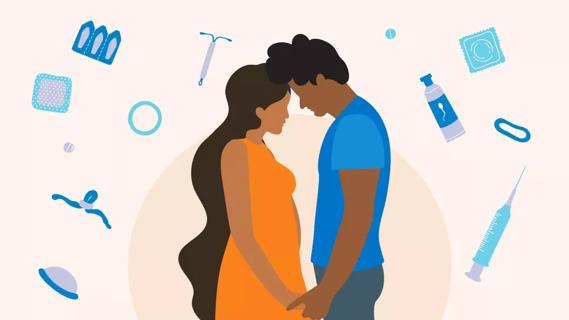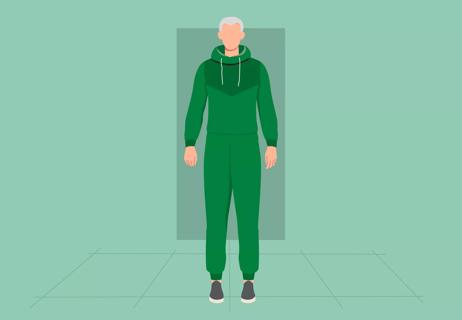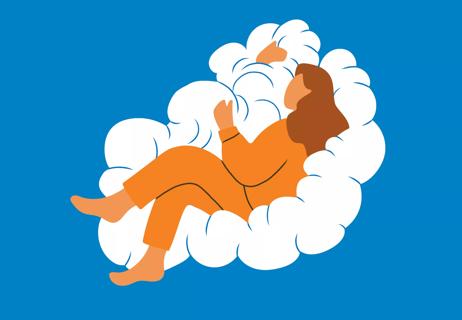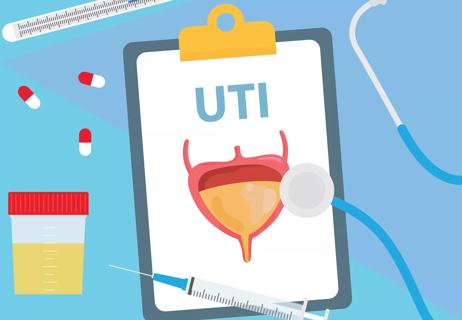Manage your sexual health and urinary function with annual appointments starting at age 40

Staying fit. Eating healthy. Juggling family life with career and friends.
Advertisement
Cleveland Clinic is a non-profit academic medical center. Advertising on our site helps support our mission. We do not endorse non-Cleveland Clinic products or services. Policy
When you already have a million priorities, seeing a urologist is probably the last thing on your mind.
But once you hit age 40, it’s time to bump that matter much higher up the list.
After all, seeing a urologist can make your everyday life better — like by making it easier to pee or to become aroused. And while you might not think of those activities as medically relevant, urologist Petar Bajic, MD, says they absolutely are.
“People sometimes feel that sexual dysfunction and urinary incontinence are issues they shouldn’t bring to their doctor’s attention,” he says, “but in fact, these issues can sometimes be the first sign of something more serious.”
To take charge of your prostate, urinary and sexual health, you should start seeing a urologist regularly starting at age 40.
As you age, quality-of-life issues become more pressing. In men and people assigned male at birth (AMAB), changes to your reproductive system can affect your urinary system and your sexual health in particular.
“Urologists are experts in managing these issues and can help guide you on what to expect, useful lifestyle changes, when to simply observe and when to treat a problem,” Dr. Bajic says.
He continues: “If there are any changes or anything is getting worse, it’s important to come in and get evaluated so we can try to identify any underlying — and often reversible — causes that may be contributing to some of these conditions.”
Advertisement
Here are some of the common conditions that urologists see.
Here’s something you might not have been warned about in your younger years: The older you get, the harder it can become to pee.
“This can include frequent or intermittent urination, waking up several times in the night to use the bathroom and a burning sensation when you pee,” Dr. Bajic says.
The culprit is often an enlarged prostate, or benign prostatic hyperplasia (BPH). On its own, this condition isn’t cancerous and can often be treated with medication, though sometimes, a procedure or surgery is necessary.
“Your urologist will likely also recommend making some lifestyle changes, which could include modifying your diet and avoiding caffeine and alcohol,” he adds.
Another reason it’s important to talk to a urologist about trouble urinating: Sometimes, the symptoms of BPH indicate a more serious condition, like prostate cancer, so you’ll want to catch it quickly.
A prostate-specific antigen (PSA) test can predict your lifetime risk of prostate cancer.
“This simple blood test can help determine your risk of developing prostate cancer and show us specifically what we need to do to screen you in the future,” Dr. Bajic explains.
The higher your PSA level, the higher your chances of prostate cancer (though other factors, including age, infections and other medical procedures, can also affect your PSA levels).
If your PSA is .7 or below, you may only need to be screened every five years or so, with a lifetime risk of prostate cancer of about 10% or less. If you’re at higher risk, with a score of 1 or above, you may benefit from more frequent screening. Then, if you reach age 60 and your score is below a 1 or 2, it’s likely safe to spread out the screening interval again.
“Cancer screenings can be lifesavers,” Dr. Bajic emphasizes. “Regular visits to your urologist can keep you feeling good and make age-related health problems a little easier to cope with.”
No matter your age, any lumps or bumps on your genitals should be checked out by a urologist, as should any testicular pain. Causes may include:
Erectile dysfunction and a decline in libido aren’t uncommon, especially as you start to hit your late 40s and early 50s.
Advertisement
“We loosely define the term ‘erectile dysfunction’ because sexual activity is different for different people,” Dr. Bajic notes. “Some people engage in penetration, and other people don’t. But basically, if you’re basically bothered by a lack of sufficient rigidity, then you have erectile dysfunction.”
About 50% of men experience it to some degree by the end of their 50s, while 1 in 10 men deals with it for the long term. And sometimes, it can also be a harbinger of a serious medical issue.
“Erectile dysfunction can be one of the first signs of cardiovascular disease,” Dr. Bajic warns, “so if you notice any changes, it’s important to talk about it with a urologist.”
They’ll do a blood test to check your hormone levels, and they may order a urinalysis (pee test) or other tests to get to the bottom of things. Depending on the cause of your erectile dysfunction, they’ll also be able to recommend options like testosterone replacements or other medication, sex therapy, injection therapy and more.
Think STIs are young person’s problem? Think again. If you or your partner have multiple sexual partners, you’re at risk, period.
“Painful bumps and visible erosions can be from something like herpes,” Dr. Bajic says, “but STIs don’t always have visible symptoms either, so it’s important to discuss your sexual health with your provider — and to be honest about it.”
Advertisement
Your primary care provider can also do STI testing, but if you’re seeing a urologist, be sure to raise any specific concerns.
If you’re done having kids or want to make sure you don’t have any, you might be interested in having a vasectomy. This short procedure prevents sperm from reaching your semen, making it a highly effective form of permanent birth control.
It’s an option that could give you and your partner peace of mind in your sex life. And it’s a quick, safe outpatient procedure with no long-term risks.
“Your urologist can answer any questions and concerns you have about the procedure, give you guidance on other forms of birth control, perform the procedure and let you know when it’s safe to have unprotected sex with your spouse,” Dr. Bajic explains.
Annual urology visits aren’t just for cisgender men. If you’re a trans woman or nonbinary person who was assigned male at birth, it’s just as critical that you keep tabs on your sexual health and urinary function and that you get the right cancer screenings.
But some of your symptoms may be different from those of cisgender men, especially if you’ve had gender affirmation surgery or are on feminizing hormone therapy. Your symptoms may be masked or nonexistent, so it’s important that you stay in close touch with your primary care provider and see a urologist, too, when the time is right.
Advertisement
Look for a provider who is welcoming and affirming and who has experience working with trans and nonbinary patients.
Hopefully, by now you’re convinced that seeing a urologist can improve your quality of life (or help keep it high) as you get older. It may initially feel embarrassing or anxiety-inducing to talk about your urinary and sexual health, but rest assured: Your urologist has seen and heard it all, and they know just how important these issues are.
“We deal with a lot of very sensitive topics, including erectile dysfunction, prostate enlargement and low testosterone,” Dr. Bajic says. “We do everything we can to make people feel as comfortable as possible when they come to see us.”
Learn more about our editorial process.
Advertisement

The Short Answer from a specialist

‘Safer sex’ means STI prevention, avoiding unintended pregnancies and psychologically safe practices for everyone

Working your pelvic floor muscles can help you prevent and recover from urinary incontinence

A prostate massage is used most often for sexual stimulation

Sleep-sex episodes are rare sleep-related disorders

Foods that can help, and harm, your prostate

Recurrent urinary tract infections are most common in women, seniors

Freedom from pain can restore intimacy

Type 2 diabetes isn’t inevitable with these dietary changes

Applying a hot or cold compress can help with pain